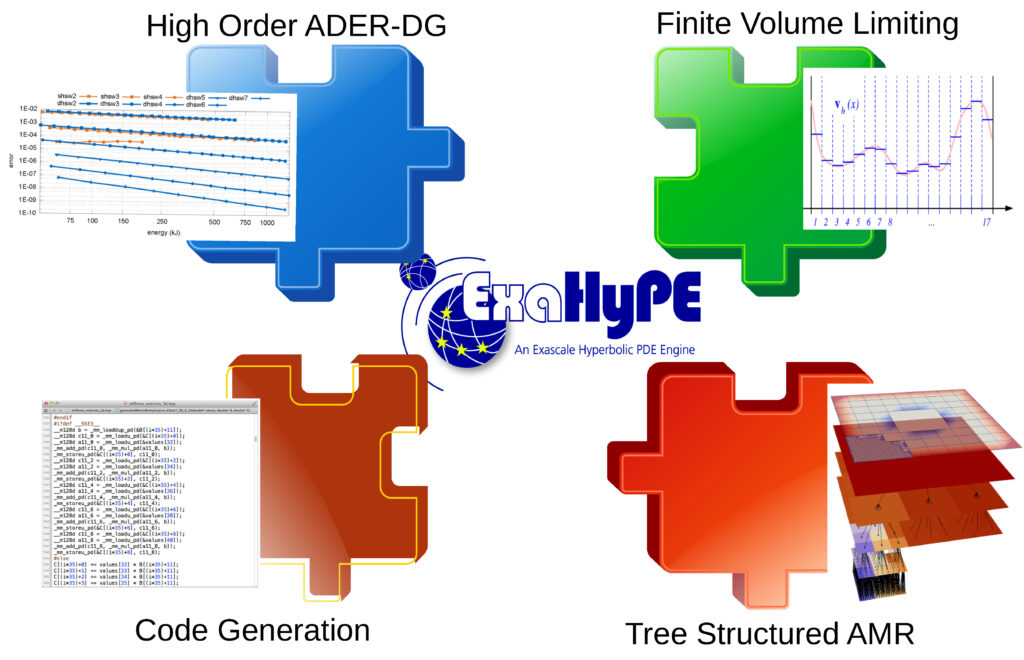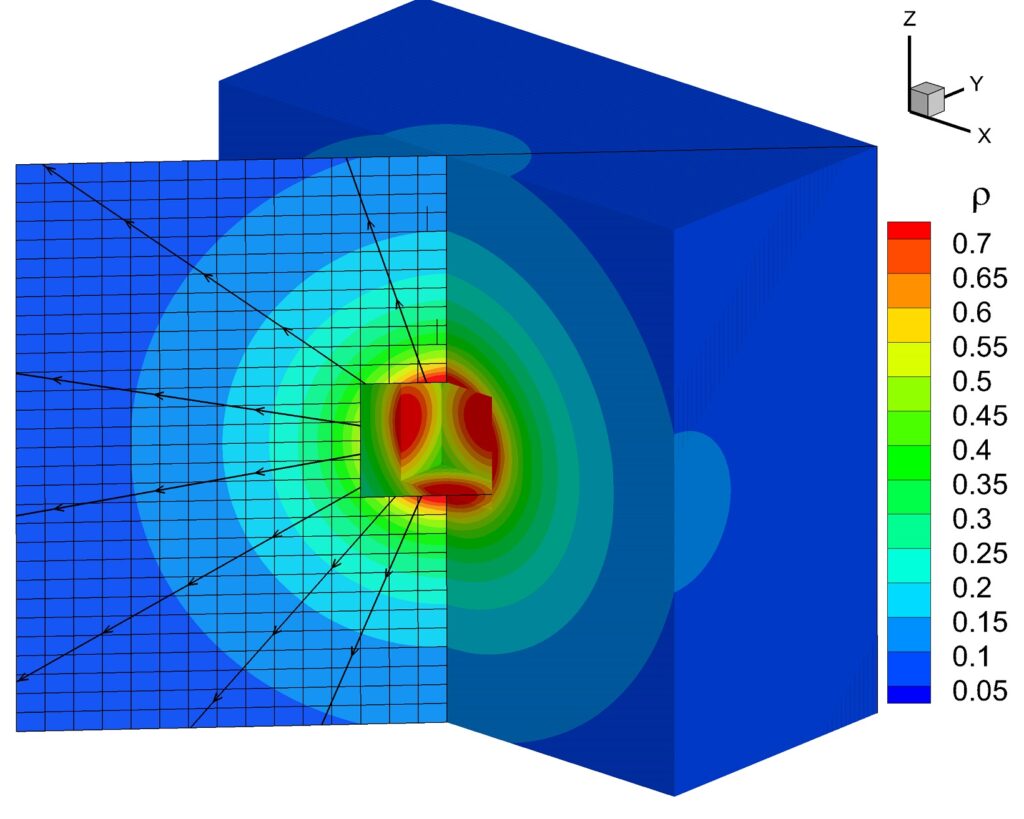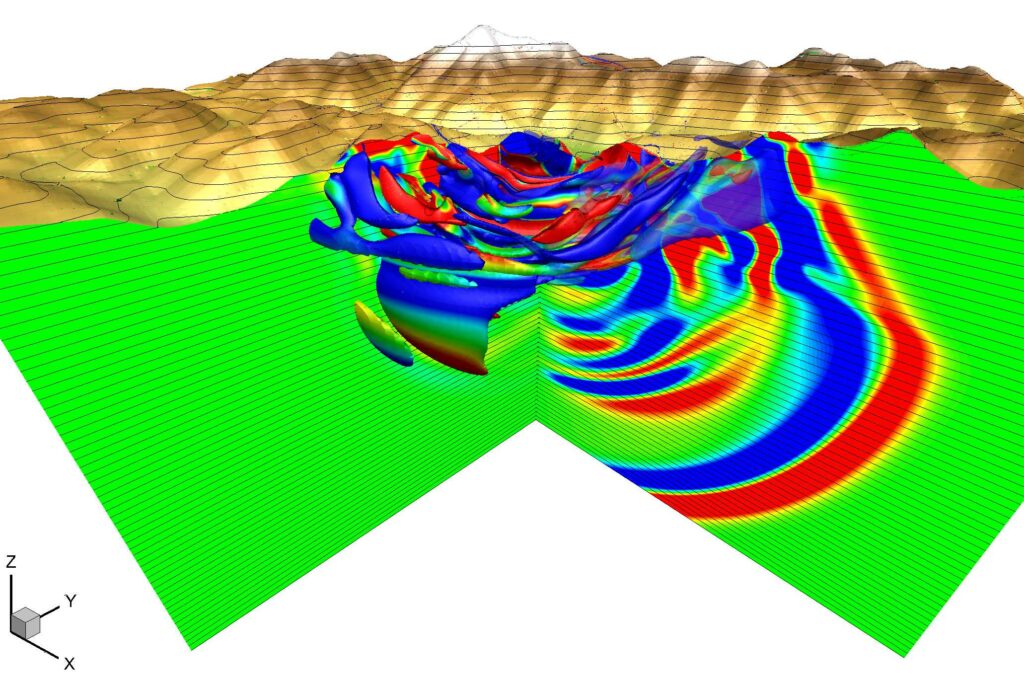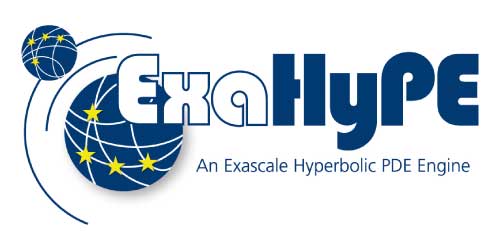ExaHyPE Vision
Hyperbolic systems of PDE resulting from conservation laws are the basis to simulate a wide range of problems, ranging from complex earthquake physics, via atmospheric processes and all kinds of flow problems up to the most catastrophic events in the universe. The ExaHyPe engine shall enable teams of computational scientists to more quickly realize grand challenge simulations on exascale hardware based on hyperbolic PDE models.ExaHyPE Algorithms
The engine implements a high-order discontinuous Galerkin approach with ADER time stepping and a-posteriori finite-volume limiting, which combines high-order accuracy with the robustness of finite volumes. Problems are discretised on tree-structured fully adaptive Cartesian meshes, for which advanced parallelisation approaches and load-balancing algorithms are available.ExaHyPE Engine
The hyperbolic PDE engine is available as open source software, hosted at www.exahype.org. The consortium provides a guidebook coming along with the released code which contains, besides documentation, rationale and further documentation links.ExaHyPE Demonstrator Applications
The ExaHyPE project evaluates the engine’s capabilities on two exascale candidate scenarios stemming from computational seismology and astrophysics, respectively: regional earthquake simulation, particularly in alpine areas, and the fully relativistic simulation of (systems of) neutron stars and black holes. Demonstrator scenarios from these application areas and further use-cases are available on exahype.org.


Previous image
Next image




